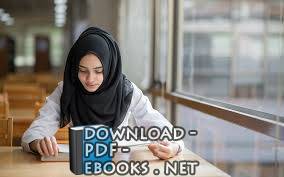📘 ❞ muslim women and political rule: an analysis of the texts ❝ مجلة
المرأة المسلمة في القرآن والسنة - 📖 مجلة ❞ muslim women and political rule: an analysis of the texts ❝ 📖
█ _ 0 حصريا مجلة ❞ muslim women and political rule: an analysis of the texts ❝ 2025 texts: AMSS 38th ANNUAL CONFERENCE “Islamic Traditions Comparative Modernitites” Cosponsored by: The University Virginia, Charlottesville, VA September 25 26, 2009 FINAL PAPER “The Political Role Muslim Women: Between Traditional Texts Changing Realities” By: Noor Mohammad Osmani, Ph D (International Islamic Malaysia [IIUM], Kuala Lumpur, Malaysia) Abu Umar Faruq Ahmad, D (Sule College, Sydney, Australia) Muhammad Yousuf Ali, Malaysia) Abstract Muslim scholars are in general agreement that not entitled to hold topmost public office a nation Is it due Qur’anic Prophetic traditions (ahadith) barred from key positions or is largely socio cultural economic settings country? The Qur’an urges stay quietly at home make dazzling displays like pre period Jahilyia [ignorance] (33:33) It also asserts men protectors maintainers (4:34) only tradition this regard Prophet reported have said, “No will ever prosper if woman assigned its highest ” (Bukhari, no 4073, 6570) On other hand, since acclaims Queen Sheba for her just rule, such prominent as Imam Abu Hanifah, Tabari Ibn Hazm support could judicial position there theoretical prohibition carry out mission Prophethood Naturally, they be Prophets, would leaders, Prophets leaders This research aims explore issue examine objectively by primarily analyzing ayats, traditions, heritage Caliphs verdicts jurists paper critically evaluate validity quoted hadith, circumstances order understand how why said hadith crucial address present day realities, significant number successfully led their nations toward prosperity holding offices Finally, presentation hopes shed light on what real status should today Qur’an, traditional sound realities? المرأة المسلمة القرآن والسنة مجاناً PDF اونلاين أولى الإسلام اهتمامًا كبيرًا ونظر إليها نظرة تكريمٍ واعتزازٍ فالمرأة هي الأم والأخت والابنة والعمة والخالة والجدة والزوجة شريكة الرجل تحمل مسؤوليات الحياة وقد كلَّفها الله مع النهوض بمهمة الاستخلاف الأرض وتربية الأبناء وتنشأتهم تنشئة سوية وجعلها درجة واحدة التكريم والإجلال ولهذا؛ فإن هذا القسم يحتوي كتب تتحدث عن كما جاءت الشرع الإسلامي مما يؤكد رسالتها التي خصها بها
- مساهمة من: The University of Virginia, Charlottesville, VA
( الثلاثاء 19 يونيو 2018 ( 8:48 مساءً )) - تبليغ عن سوء استخدام
AMSS 38th ANNUAL CONFERENCE
“Islamic Traditions and Comparative Modernitites”
Cosponsored by:
The University of Virginia, Charlottesville, VA
September 25-26, 2009
FINAL PAPER
“The Political Role of Muslim Women: Between
Traditional Texts and Changing Realities”
By: Noor Mohammad Osmani, Ph.D
(International Islamic University Malaysia [IIUM], Kuala Lumpur, Malaysia)
Abu Umar Faruq Ahmad, Ph.D
(Sule College, Sydney, Australia)
Muhammad Yousuf Ali, Ph.D
(International Islamic University Malaysia [IIUM], Kuala Lumpur, Malaysia)
Abstract
Muslim scholars are in general agreement that women are not entitled to hold the topmost public office of a nation. Is it due to Qur’anic texts and Prophetic traditions (ahadith) that women are barred from key positions or is it largely due to socio-cultural and economic settings of a country? The Qur’an urges women to stay quietly at home and not to make dazzling public displays like that of the pre-Islamic period of Jahilyia [ignorance] (33:33). It also asserts that men are the protectors and maintainers of women (4:34). The only Prophetic tradition in this regard is that the Prophet is reported to have said, “No nation will ever prosper if a woman is assigned to its highest public office.” (Bukhari, no. 4073, 6570). On the other hand, since the Qur’an acclaims the Queen of Sheba for her just rule, such prominent scholars as Imam Abu Hanifah, Tabari and Ibn Hazm support that women could hold the topmost judicial position. Ibn Hazm also asserts that there is no theoretical prohibition for women to carry out the mission of Prophethood. Naturally, if they could be Prophets, they would also be the leaders, for the Prophets are the leaders. This research aims to explore this issue and examine it objectively by primarily analyzing Qur’anic ayats, Prophetic traditions, the heritage of Islamic Caliphs and the verdicts of Muslim jurists. The paper will critically evaluate the validity of the quoted hadith, and examine its circumstances in order to understand how and why the Prophet would have said such a hadith. This analysis is crucial to address present day realities, as a significant number of Muslim women have successfully led their nations toward prosperity by holding topmost offices. Finally, this presentation hopes to shed light on what the real political status of Muslim women should be today in light of the Qur’an, traditional texts and sound realities?
#3K
0 مشاهدة هذا اليوم#44K
0 مشاهدة هذا الشهر#64K
5K إجمالي المشاهدات- 🎁 كن أول كاتب اقتباس في هذه الصفحة واحصل على هديّة 15 من النقاط فوراً 🎁

